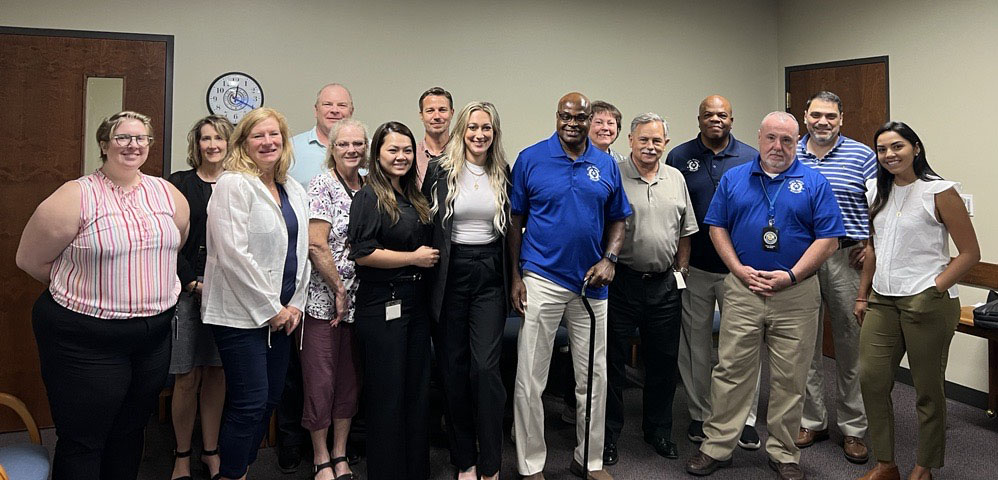
In October 2022, the Texas Appraiser Licensing & Certification Board (TALCB) tapped the Texas Workforce Commission (TWC) Civil Rights Division for help in working towards making the appraisal industry bias-free. Both agencies hoped to gain an understanding of the impact of bias in appraisals and have committed to thorough and impartial investigations of these complaints. The partnership also ensures highly trained staff in both agencies can properly respond to possible instances of appraisal bias. Here is how.
Why is This Teamwork Necessary?
“When we started hearing about this on the national level—on the news with stories about homeowners having appraisals done with bias and it is impacting them financially—I knew that we would be seeing more of these complaints, too. I thought it was important for us to be proactive in making sure we have the resources to take on these complaints in a manner that is fair to both the consumers and appraisers,” said TALCB Director Melissa Tran.
The partnership has allowed each agency to fill in knowledge gaps. TWC has a Fair Housing Assistance Program, funded by the U.S. Department of Housing and Urban Development and staffed with fair housing investigators. The investigators at TALCB are all certified appraisers with extensive field and review experience.
How the Partnership Works
The collaboration between TALCB and TWC allows for data sharing of instances involving fair housing violations, leading to more effective enforcement.
TWC, the state agency that investigates complaints alleging violations of the Texas Fair Housing Act, and TALCB, the state agency that licenses and regulates real property appraisers, each review complaints by consumers related to appraisals that involve possible fair housing violations.

The work also includes educating TWC and TALCB investigators on fair housing laws with the goal that they can better assess these types of complaints. The agencies combined resources to host trainings and collaborate on case investigations. The above is a picture taken after one of those trainings with staff of both TWC and TALCB.
This program is beneficial for consumers, but also provides a fair process for appraisers, since those accused of bias in their appraisal practice or violating fair housing laws will have subject matter experts thoroughly review their case.
The Process
When TALCB receives a complaint that alleges appraisal bias, it is referred to TWC, where neutral investigations are conducted to determine whether a fair housing violation has occurred. TALCB provides expert assistance regarding the appraisal process throughout TWC’s investigation. TALCB then investigates whether the appraiser complied with the Uniform Standards of Professional Appraisal Practice (USPAP). The Board does not begin its full investigation until TWC is finished. TWC's average turnaround time is about six months.
TALCB has administrative authority over the license of an appraiser. The Board can suspend, revoke, order additional education or mentorship for the appraiser, and issue penalties. TWC has broader authority to broker conciliation agreements between an aggrieved party and the appraiser, which could include a monetary payment or payment for a new appraisal, and discontinuation of discriminatory practices. This furthers the goal of making an aggrieved party whole. Additionally, appraisers could be required to adopt a fair housing policy, attend TWC fair housing training, and agree to monitoring of the agreement for a set amount of time.
This partnership continues to evolve but is serving as a basis for those facing licensing complaints, and it is ensuring investigations are handled by subject matter experts. This means appraisers, as well as Texans, are getting a fair process.
“In June we made some process changes to incorporate what we learned about the partnership and what was working and what wasn’t,” said TALCB Director Tran. “The purpose of those changes was ensuring subject matter experts from both agencies are looped in from beginning to end — opening channels of communication between the two agencies. Instead of TWC only reaching out to us with questions, we are now part of their triage process.”
The Impact
One of the greatest benefits of this partnership is providing consumers a resource for addressing potential fair housing issues.
To date, 16 complaints that would not have otherwise been on its radar, have been referred to TWC. Eight were returned to TALCB. One case resulted in conciliation—meaning the appraiser involved agreed to resolve the complaint by paying a fine and/or completing an education requirement. The remaining cases were closed with no action. Some of the complaints involve allegations of bias over sexual orientation, disability, or gender.
“We take the time that’s needed to get it done right,” said TALCB Director Tran. “Discrimination-related complaints are complex and aren’t always straightforward.”
No single solution exists to solve the current and historical inequity in housing. But through the formation of partnerships, such as this, TALCB is working to fill gaps in education, resources, and enforcement — and achieve tangible results that benefit Texas consumers.
Get more information on filing a complaint with TALCB or with TWC. A complaint that alleges appraisal bias can go to either agency.

